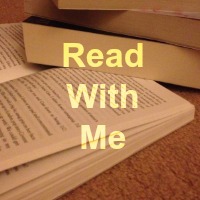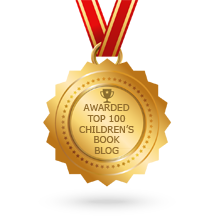Helping Your Child Learn at Home & Preventing the 'Summer Slide'
As you may know I am a teacher-on-career-break since having the bairns, and since starting the blog I've become really passionate about how, we, as parents can help support children at home. And how, we, as teachers, can help parents do that. I know at parents evening I always got asked by parents how they could help their children at home, and since becoming a parent myself (though not of a school aged child) my insight into this has changed. And during the summer holidays there can be a huge dip in children's ability to retain what they learned in the previous year, teachers refer to it as the summer slide. So I thought I would share a few tips with you on how you can help your kids learn at home.
Reading
This is probably a predictable one coming from me! Read read and read. And by this I mean a few things. I mean read with your child. Even if they can read themselves. Read aloud to them. No matter what age they are. Remember they might struggle to read books that they actually find interesting by themselves. School reading schemes are good in many ways but having read Biff, Chip and Kipper many times I think I'm qualified to say they are pretty dull. Please don't just read the set reading pages for homework at home. You need to find something more interesting. Help them find a blogger such as Book Lover Jo who has the best recommendations for middle grade and early chapter books to find out what new books are available. Ask the librarian. Ask the bookseller. Be interested in what they are reading. Talk about it. Talk about what you are reading. Make books a conversation. Make them a passion. Did you know that reading twenty minutes a day means reading roughly 1.8 million (yes!) words a year? Think how much that could help your child learn.
Technology
I'm an advocate of technology to support learning. We all love a little screen time. Screen time is great! I'm all for it. And BookBairn loves her tablet. She uses it daily. We try to use it wisely though. She plays educational (and fun) games on it, she uses to to draw and create, she watches TV programmes on it, she watches nursery rhymes, she watches people on YouTube opening surprise eggs (I know!!!). There are lots of great apps out there for kids to help them learn as well as having fun. We use CBeebies a lot for BookBairn because of her age and have recently become very excited by the Oi Frog app. But for older kids the Nosy Crow apps are great for literacy and when I was teaching, I loved Nessy (and so did the kids) which is great in helping support children with phonics. I also love the BrainPop videos for learning lots about a whole variety of subjects. Ask you child's teacher if there's a programme they use in school and see if there's a home learning version. We also love our Osmo, which is essentially a mirror that clicks over the camera on an iPad and allows children to play educational games on a table top but the mirror picks it all up and connects with the iPad to play interactive games. BookBairn has some of the more basic games - tangrams is a favourite but we also have a pizza game and whilst BookBairn plays on 'junior' mode just making the pizzas it has other options up to fully running a shop - pizza making, dealing with payments and stock ordering. There are lots of great games that you can get and I love the look of a coding game that they have for when BookBairn is older. Technology can be our ally - if we get it on our side. And the occasional YouTube video never hurt anyone.
Homework Books
I was recently sent a huge bundle of Leckie and Leckie homework books to review but of course my kids are too young for this sort of activity book so I enlisted the help of some friends, both mums and teachers, to get their opinions.
"This is awesome mum, it's just like a textbook." - Joshua, 7. Isn't it fascinating how kids often really love textbooks?
"I love the books! I've been using them for homework and consolidating activities in class. I like how they are set out so the kids can do one section rather than the whole sheet. The self assessment worked well and gave us an indication of where each pupil felt they were and was a basis for discussion with their learning. The kids said they really like them (as much as they hate homework!!) because of the ability to get points!" - P3/4 teacher
Emma (aged 10) said she liked the fact there were different challenges to try. As she hadn't used the books before she opted for [level] one but read ahead to see what the questions were like.
"The differentiation is very good and I like the layout of the book. Easy to us and look for areas that need more work." - Emma's Mum who is also a primary teacher.
According to pupils in a P4/5 class they found the books "easy to understand."
"The questions are hard, but not too hard."
"Like that there's a score so you know how well you've done."
"Not too many questions on a page."
 |
| Joshua |
"I love the books! I've been using them for homework and consolidating activities in class. I like how they are set out so the kids can do one section rather than the whole sheet. The self assessment worked well and gave us an indication of where each pupil felt they were and was a basis for discussion with their learning. The kids said they really like them (as much as they hate homework!!) because of the ability to get points!" - P3/4 teacher
Emma (aged 10) said she liked the fact there were different challenges to try. As she hadn't used the books before she opted for [level] one but read ahead to see what the questions were like.
 |
| Emma |
"The differentiation is very good and I like the layout of the book. Easy to us and look for areas that need more work." - Emma's Mum who is also a primary teacher.
According to pupils in a P4/5 class they found the books "easy to understand."
"The questions are hard, but not too hard."
"Like that there's a score so you know how well you've done."
"Not too many questions on a page."
 |
| Millie, and her big brother Jamie |
"Overall, I quite like the books from a parent point of view. Sections are short so don’t take too much time, and would be easy to use to find areas where your child might need extra support." - Millie's Mum who is also a primary teacher.
When I looked through the book myself, I thought, from my teaching experience that some of the questions looked quite tricky and as they are organised P1/P2 (or aged 5-7), P2/3 (aged 6-8) I would recommend starting with the lower age category so that you child isn't faced with a whole lot of questions that they can't answer. Homework, and work at home, should be all about practicing and consolidating what is learned at school and shouldn't be so challenging that you need to teach your child (or yourself!). With younger children there is obviously a level of support that they will require, they need this in class too, as they are just learning who to work.
I liked the way that the books were organised by topic so that you could easily find a section that you know your child has been working on in class (and if you don't know you can always ask their teacher) and also liked the self-assessment tool as I found this so useful when I was working in a classroom. And, like the kids, I liked the motivation of earning points!
I also liked that these books were specifically tailored to match the Scottish Curriculum for Excellence so you know that it will support what your child is learning in a Scottish classroom. (There are equivalent versions for English curriculum too.) You can find them all on the Collins website here.
Board Games
There are some many great things that your kids learn whilst playing board games. BookBairn is only three and she has learned the concept of taking turns, can identify numbers using a spotted dice, and can count the right number of places, as well as realising the games have rules and that you can't always win. For older children, the potential is even greater because the games are much more complicated - there's added strategy vs chance involved too. Connect 4 is a great easy fun game, but has a whole lot of potential to be more devious and cunning, as does dominoes. Battleship is great for learning about co-ordinates and mapping. Monopoly has lots of money skills involved. Obama Llama is all about rhyming - a key skill in literacy for reading and spelling! Scrabble is a brilliant spelling game! And games like Head's Up, Trivial Pursuit are great for extending children's knowledge. And it's always fun to sit down as a family and spend time together! We often play a board game before bed. (The Orchard Toys games are really good for younger children and we play them lots!)
I hope those tips have helped you and you've enjoyed this slightly different post from me. I am really passionate about helping parents help their kids! If you'd like to see a similiar list of ideas for preschool children please let me know. Or if there is anything specific that you think I could help with such as games for learning to read or practising phonics I could think up a few ideas too!
Happy homework-meets-play!
Kim (teacher-at-large!)
 |
| Pin for Later |








































I’m exhausted thinking about all the activities you can get up to in the summer. Lots of great ideas here. Good luck to all the parents and learners.
ReplyDeleteThanks! I hope you will play some board games and read some stories with us over the summer!
DeleteThese are all great tips, learning needn't be boring! #readwithme
ReplyDeleteThanks! I think we have to look at the summer as a time to learn other things but gosh if kids could keep reading over the holidays it would make such a difference!
DeleteWhat great tips, thanks for sharing! Will have to look up some of those apps as we could definitely use some more interesting ones. #Readwithme
ReplyDeleteI need to look into Apps more. I think it's a bit of a minefield so would be worth looking for some great ones.
Delete